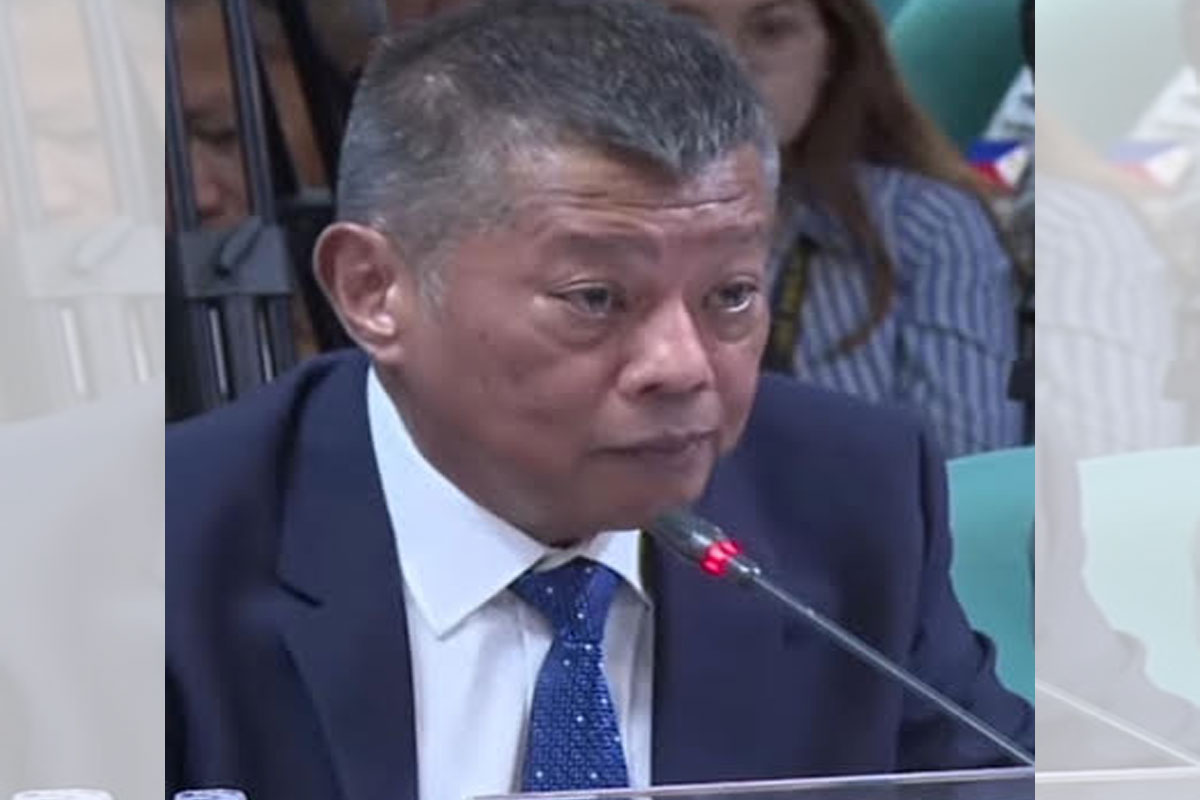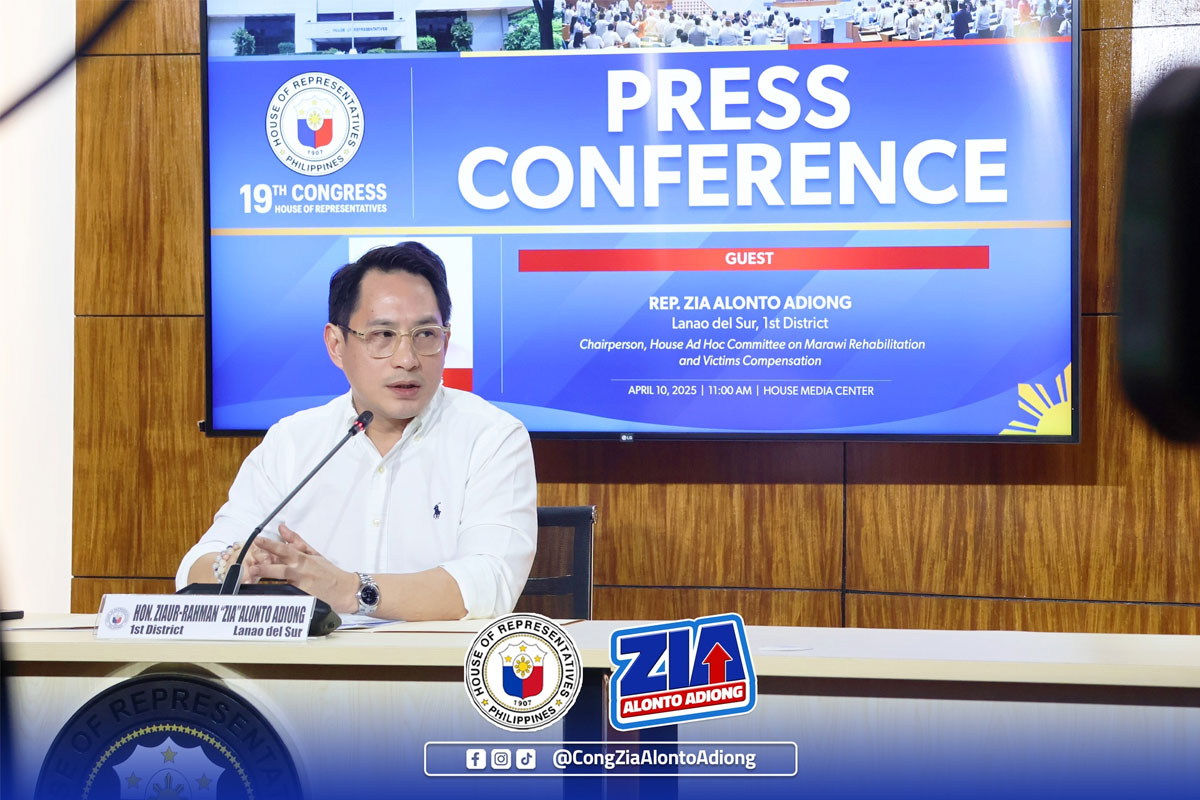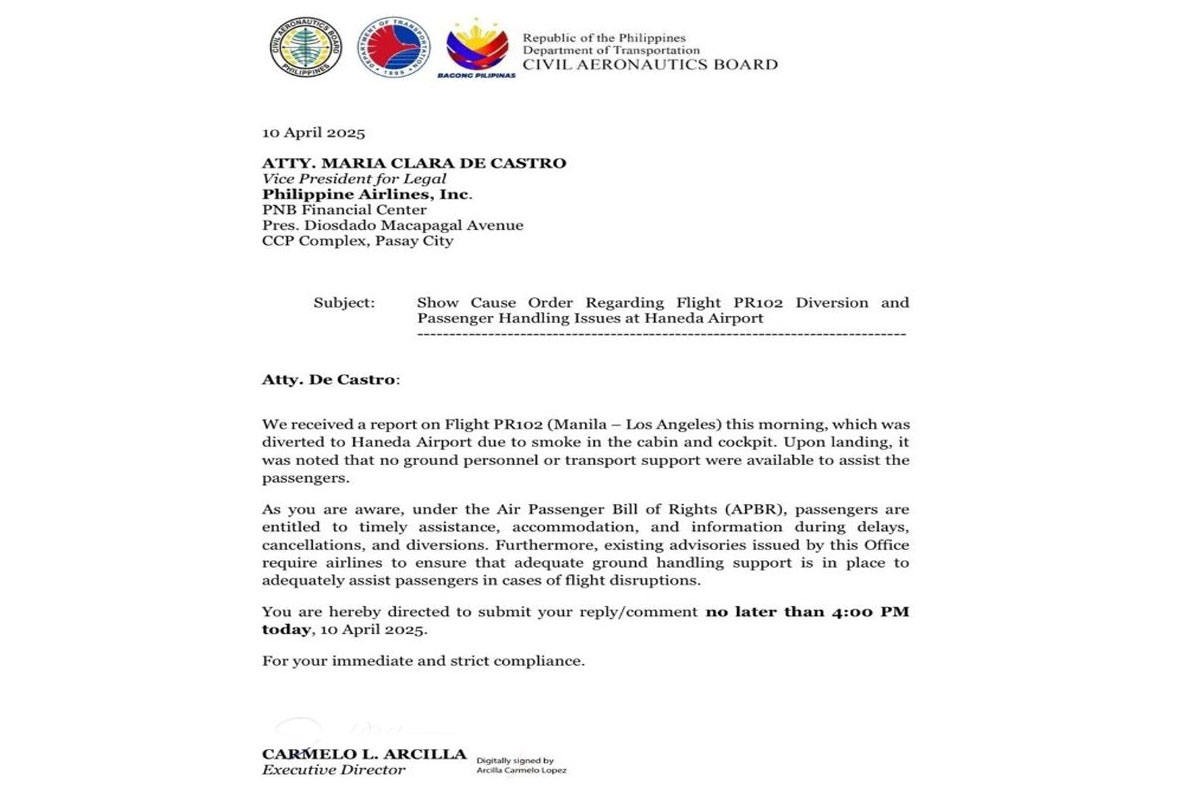
Salt farmers may gain access to cash aid to revive dying industry
A LAWMKAER on Thursday said he sees farmers and producers dependent on the moribund salt industry gaining easy access in the near future to badly needed financial and technical assistance for them to rev up their once thriving sector.
Camarines Sur Rep. and National Unity Party (NUP) president LRay Villafuerte said this positive development surfaced as the Senate recently followed the House of Representatives under the leadership of Speaker Ferdinand Martin G. Romualdez in passing its version of a congressional measure establishing the Philippine Salt Industry Development Council (PSIDC), which shall craft and implement a Roadmap to speed up the modernization and industrialization of the Philippine salt industry.
The Senate approved on third and final reading by a 22-0 vote Senate Bill (SB) 2243, which aims to make this industry competitive anew in the local and international markets and help create more jobs in the agriculture and agribusiness sector.
Villafuerte, who represents Camarines Sur second district in the House, said that the bigger chamber had earlier passed House Bill (HB) 8278 that also seeks to establish the PSIDC “to craft and implement a Roadmap to speed up the modernization and industrialization of the Philippine salt industry.”
Following the measure’s approval in both chambers, he said the next step for lawmakers is to hammer out in the bicameral conference committee (bicam) level a consolidated bill, which, upon ratification by both the Senate and the House, shall be submitted to Malacañan Palace for President Marcos’ approval and enactment into law.
“Under the proposed Roadmap, the would-be PSIDC shall, among others, identity sources of financing and facilitate credit windows from state-run banks and the ACPC (Agricultural Credit Policy Council) for them to accelerate the development of the moribund salt industry,” Villafuerte, a lead author of HB 8278, said.
“With an archipelagic nation like the Philippines ironically importing over 90% of its annual salt requirement, the main task of the PSIDC is to draw up a short-, medium- and long-term Roadmap to expand land area devoted to the production of this agricultural product, boost farm productivity, promote investments in this sector, institutionalize capacity-building programs for salt farmers and producers through the ATI (Agricultural Training Institute), and market overseas our Philippine products made from this nutrient,” Villafuerte said.
HB 8278—the substitute bill on the proposed “Philippine Salt Industry Development Act”—was unanimously passed by the House on third and final reading by a 287-0 vote before the 19th Congress adjourned sine die last June.
The PSIDC is tasked under HB 8278 to likewise incorporate in the proposed Roadmap the strengthening of market linkages and promotion of Philippine salt, along with the pursuit of research and development (R&D) on innovations in the salt sector, he added.
Villafuerte said the PSIDC shall also create an Agri-Insurance Program for salt farmers and producers, and set rules as to when locally produced salt may be subjected to mandatory salt iodization under Republic Act (RA) No. 8172, or “An Act for Salt Iodization Nationwide (ASIN).”
Villafuerte said that HB 8278 aims “to put flesh into President Marcos’ goal to revive the dying salt industry and help it get back on its feet on his watch.”
Villafuerte was one of the authors of HB 7357, which was incorporated into the House-approved substitute bill that had been crafted by the House agriculture committee’s technical working group
(TWG).
He said the House agriculture panel chaired by Quezon Rep. Wilfrido Mark Enverga had approved HB 8278 that was endorsed by its TWG headed by Kabayan Rep. Ron Salo.
The House-approved substitute bill consolidated six same-topic bills on reviving the salt industry, including HB 7357 that Villafuerte had written with fellow CamSur Reps. Luis Miguel Villafuerte and Tsuyoshi Anthony Horibata plus Bicol Saro Rep. Brian Raymund Yamsuan.
This salt development bill is among the expanded list of 54 priority bills that President Marcos had endorsed for urgent legislative action, of which 37 were passed by the House of Representatives—under the leadership of Speaker Martin Romualdez—during the First Regular Session of the 19th Congress.
Villafuerte had co-authored 28 of these 37 House-approved priority bills.
Villafuerte said that, “Considering the expansive coastlines of the Philippines, it truly baffles us why our archipelago was reported in 2021 to be producing only 7% of the national salt requirement and importing the other 93% equivalent to around 550,000 MT.”
Villafuerte said the proposed PSIDC shall provide the overall policy and program directions and coordinate the activities of the various agencies and instrumentalities to ensure the implementation, accomplishment, periodic review and enhancement of the Roadmap.
He traced the local salt-making industry back to the 18th century, saying there was a time when Las Piñas and Malabon were the top salt producers before Pangasinan eventually became the country’s leading area for salt production.
Villafuerte said the decline of the salt industry was a result of the following:
• Ratification of the Philippines of the General Agreement on Tariffs and Trade (GATT) in 1994, which was seen as the reason for the influx of cheap salt imports;
• Enactment of RA 8172 of 1995, which required the addition of iodine to salt to address the country’s micronutrient malnutrition.
“The capital requirement for the machinery and technology for salt iodization was a heavy burden for local salt makers, leading many of them to drop one by one and shift to other livelihood sources,” he said;
• Rapid urbanization, which led to the conversion of more and more salt-producing places into residential and industrial areas; and
• Erratic weather patterns caused by climate change, which have been adversely affecting salt producers who are very dependent on weather conditions.



















